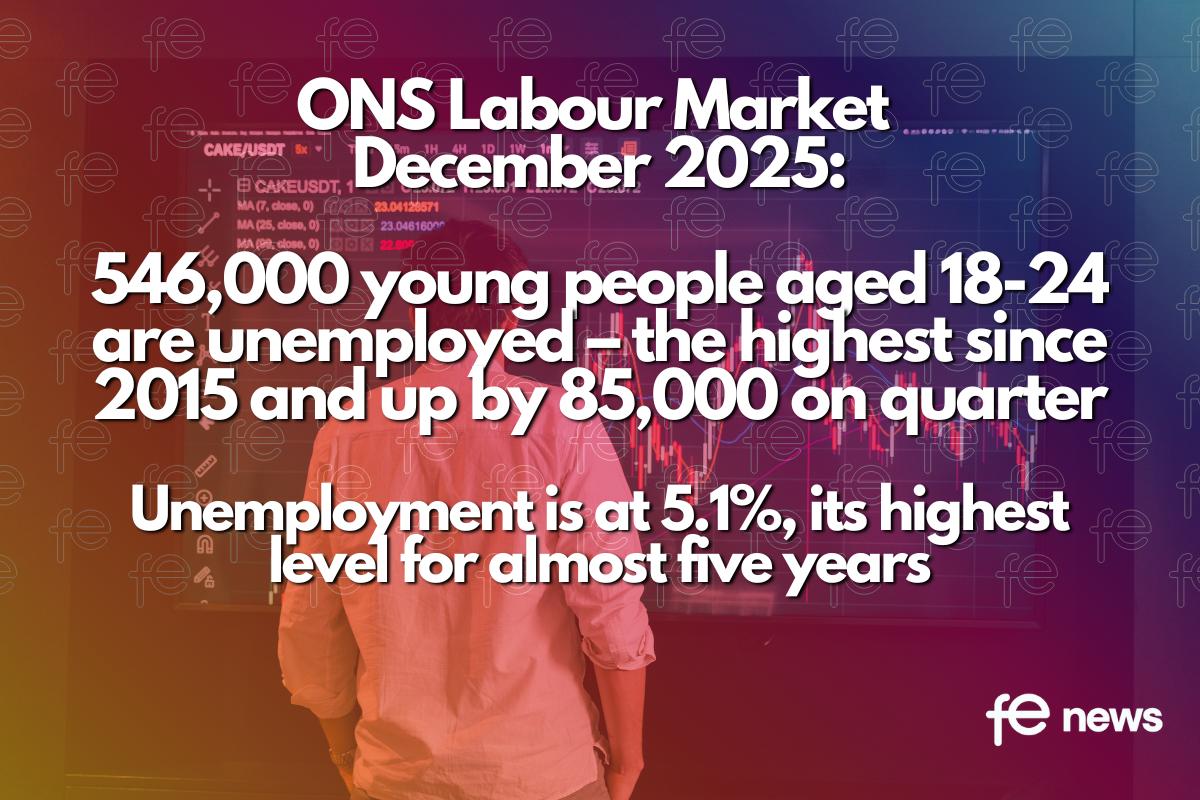#Skills confidence has grown almost 10% between 2012 and 2019 #FutureofWork

10 years on from the financial downturn, research reveals the growing strength of the UK workforce.
New research from ADP has revealed the strength of the UK workforce and its growth in optimism, stability and skills confidence since 2012, the period often considered the tail-end of the economic downturn.
The findings point to a more positive workforce that has continuously strengthened since the financial crash. Optimism has grown with just 12% of respondents reporting feeling very optimistic about their future in the workplace in 2012, a figure that jumped to 27% in 2019.
ADP’s Workforce View report has surveyed around 1,500 UK employees every year since 2012, tracking changes in their attitudes, beliefs and opinions.
With the 2019 Workforce View report having recently been released, the research shows a strong UK workforce although concerns around the future of work and workplace inequality persist.
A stronger workforce following the financial downturn
The research illustrates a remarkable improvement in prospects since the early 2010s. In 2012, 55% of employees were worried about job security and in 2013 22% believed work would never return to normal following the financial downturn.
In 2013, 40% saw their future at work as unstable – a figure that dropped to 29% in 2014 and then to a quarter (25%) in 2015.
At the same time, skills confidence has increased in the last seven years. In 2012, just 79% of workers were confident they held the necessary skills to succeed in their role, yet just two years later this figure rose to 91% before dipping slightly to 87% in 2019.
Concerns around the #FutureofWork
However, the study also shows there are still fears around how jobs will change in the future.
In 2013, around a fifth of workers (22%) said they believed that they would have to retrain to keep up with changes in their role in the next five years, and in 2019 over a quarter (27%) believed their job will be automated or replaced by a robot in the next five years.
While the workforce is more positive and confident than in past years, there are continued concerns around preparing for the transformations of the future.
Conflict and inequality in the workplace
In recent years there has been a growing awareness around gender inequality in the workplace, particularly around shared parental leave and the new gender pay gap reporting. However, some advances have fallen short of expectations.
In 2012, 37% said they would take advantage of shared parental leave now or in the next ten years, yet 2018 figures showed that shared parental leave is sometimes as low as 2%. Mothers are still likelier to carry the brunt of the childcaring responsibility, more often opting to take leave from work, cut their hours and, ultimately, put their career on hold.
Many claim the gender pay gap can be linked back to the fact that women more often take time out of work to care for children, and the government has recently announced plans to launch a consultation looking at how the parental leave system can be improved.
Alongside this, gender pay gap reporting was implemented in 2018 in order to galvanise companies into action and the Workforce View report shows support has continued to grow. In 2018, 14% felt there was a need for gender pay gap reporting – a figure that jumped to 23% in 2019.
Other key changes include the rise of intergenerational conflict in the office. In 2012, more than half of the working nation (54%) were aware of intergenerational issues in their workplace, rising to 66% by 2015.
The rise of flexible working
Through the years, flexible working has also risen on the agenda as more people begin to focus on the importance of work-life balance.
In 2012, employees said that, aside from pay, the top workplace motivator was praise and recognition from management, yet from 2014 onwards the most popular option was generally centred around flexible working and work-life balance.
This confirms the prediction in 2012 when 32% of respondents said the ability to work when and where they want would be the top motivator for the next ten years.
Melanie Robinson, Senior HR Director at ADP, commented:
“It’s encouraging to see how confident and positive the workforce is since the downturn of the late 2000s and early 2010s. Businesses have been through enormous change but have handled this well, alongside managing the challenges raised by digital transformation and significant change in the political sphere.”
Robinson continued: “While highly positive, this doesn’t mean organisations can rest on their laurels. Our research has found that there is still significant work to do in reducing workplace inequality and, while it is no easy feat, businesses and society must do more to address this and change entrenched stereotypes. The rise of flexible working ties in with this in many ways, allowing families to better balance their work and home lives. To stay ahead of the curve and attract top talent, businesses must ensure they’re doing everything to offer employees the benefits and opportunities that will help them get the best out of their employees.”
Skills shortages are an ongoing problem
UK firms are keen to hire but skills shortages is an ongoing problem they’re facing. In the second quarter of the year, 60% of British firms tried to hire new employees, in the latest sign of strength in the job market.
Jason Fowler, HR Director at Fujitsu UK & Ireland, said:
“It’s worrying to see that such a large proportion of organisations are struggling to find people with the relevant skills for their openings. Digital skills – for example – are key to driving effective change across the country, so, with the skills gap costing our economy £63 billion a year, there is an urgent need to funnel more efforts into investing in the UK workforce. If we don’t, there is a risk we won’t be able to keep up with the pace of change that is taking place.
“To sustain the competitiveness of the UK economy, businesses, government and educational institutions need to come together to implement a long-term plan that will help train and educate the current workforce and the next generation of workers so they are utilising new technologies and are ready for the jobs of tomorrow. Whether this is retraining programmes, apprenticeships, or public-private partnerships, there are many exciting and innovative pathways to ensure that the UK is digitally savvy.
“If we want to continue to see the UK as a ‘digital first’ nation we must ensure we are investing in all talent. From the current workforce to those at the very beginning of the journey, by developing the right skills we will be able to support the future digital economy.”
Attracting and retaining top talent in the current skill shortage
The British Chamber of Commerce released their latest employment figures yesterday (29 Jul) that indicate that UK employment is rising, particularly in the gig economy.
Offering her opinion on how businesses can continue to attract and retain the top talent in the current skill shortage, Vivienne Barclay, Vice President, Quality Operations Excellence at Korn Ferry, said:
“[These] employment results indicate that businesses are increasing the rate at which they’re recruiting, which is encouraging. The gig economy, in particular is fuelling this growth, showing how the UK’s employment landscape continues to shift as companies compete for staff with the right skills.
“Not all businesses are in the financial position to offer monetary rewards to attract and retain top talent. However, for the most part employees’ expectations have begun to shift and so money is no longer necessarily the most effective way of rewarding staff or appealing to new talent.
“Companies need to look at benefits beyond financial incentives in order to attract the best talent. From flexible working schemes for a better work-life balance, to robust career development programmes and creative working environments, employers need to communicate the benefits associated with their brand. This is particularly important as the gig economy widens the talent pool, but companies need to be responding and accepting this change.
“With this change in focus, organisations are able to attract and retain the best talent and so combat the current skills shortage that is affecting many industries”
About the research: Exploring the attitudes of employees toward the future of work, the research for ADP was carried out by independent market research agency Opinion Matters in October 2018. The sample consisted of 10,585 working adults in eight territories across Europe, including France, Germany, Italy, the Netherlands, Poland, Spain, Switzerland and the UK.











Responses